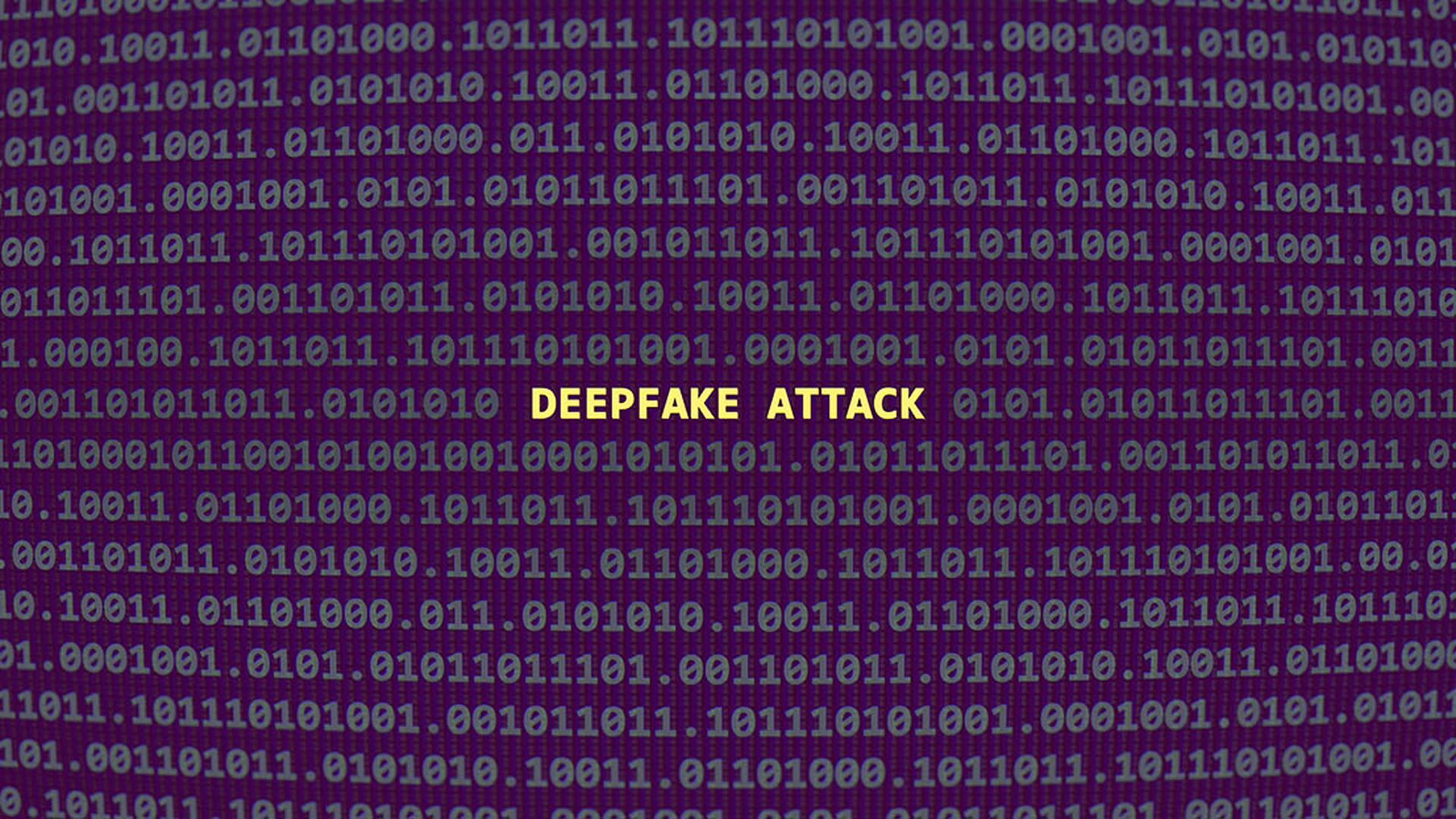Kpop Deepfake: The Phenomenon Redefining Pop Culture
Hey there, fellow K-pop enthusiasts! Let's dive straight into the buzzword that's rocking the music world right now—Kpop deepfake. Imagine your favorite K-pop idols performing songs they’ve never released, or even better, interacting with fans in ways you never thought possible. Sounds wild, right? But that's just the tip of the iceberg when it comes to this groundbreaking technology. Today, we’re going to break it all down for you, so strap in for the ride!
In an era where technology is evolving faster than we can keep up, deepfakes have emerged as one of the most talked-about advancements. For K-pop fans, this means a whole new level of engagement with the music and artists they adore. But what exactly are Kpop deepfakes, and why should you care? Let’s get into it!
This article will take you on a journey through the fascinating world of Kpop deepfake, exploring everything from its origins to its impact on the music industry. Whether you're a die-hard fan or just curious about the tech behind it, there’s something here for everyone. So, let’s dive in!
Read also:Paige Vanzant Vip Leak The Truth Behind The Hype
What Exactly Are Kpop Deepfakes?
Deepfakes are essentially AI-generated content that manipulates images, videos, or audio to create realistic but fake representations. In the context of Kpop deepfake, this means using advanced algorithms to make it seem like K-pop idols are doing things they haven’t actually done. It’s mind-blowing stuff, and it’s only getting more sophisticated.
Think about it: you could see your favorite idol performing a completely different song, or even giving a virtual interview. The possibilities are endless, and the implications for the entertainment industry are huge. But how did we get here? Let’s take a closer look.
A Brief History of Deepfake Technology
Deepfake technology has been around for a while, but it wasn’t until recently that it started gaining mainstream attention. The term "deepfake" itself was coined in 2017, and since then, it’s been used in everything from politics to entertainment. For K-pop, the rise of deepfakes has been a game-changer, offering fans a chance to experience their idols in ways that were previously unimaginable.
Here’s a quick rundown of how deepfake technology has evolved:
- 2017: The term "deepfake" is first introduced, sparking debates about its ethical implications.
- 2019: Deepfake apps start becoming more accessible to the public, leading to a surge in user-generated content.
- 2022: K-pop fans begin experimenting with deepfake technology, creating viral content that captivates audiences worldwide.
Why Kpop Deepfake Matters
Now, you might be wondering why Kpop deepfake is such a big deal. Well, for starters, it’s revolutionizing how fans interact with their favorite idols. No longer are we limited to live performances and official releases. With deepfake technology, fans can create their own content, giving them a sense of ownership and creativity that wasn’t possible before.
But it’s not just about fun and games. Kpop deepfake also raises important questions about authenticity and ethics in the entertainment industry. As the technology becomes more advanced, it’s crucial for both creators and consumers to understand its implications and use it responsibly.
Read also:Lexi Luna Rewarding Good Behavior The Ultimate Guide To Positive Reinforcement
Impact on the K-pop Industry
The impact of Kpop deepfake on the industry is significant. On one hand, it’s giving fans a chance to engage with their idols in new and exciting ways. On the other hand, it’s forcing artists and labels to rethink how they present themselves in the digital age. Here are some of the key impacts:
- Increased Fan Engagement: Fans are creating and sharing deepfake content at an unprecedented rate, leading to a more interactive fan experience.
- Challenges for Artists: With the rise of deepfakes, artists must navigate the fine line between embracing new technology and maintaining their authenticity.
- Ethical Concerns: The potential for misuse of deepfake technology is a growing concern, prompting discussions about regulation and accountability.
How Does Kpop Deepfake Work?
Now that we’ve covered the what and why, let’s talk about the how. Kpop deepfake technology works by using machine learning algorithms to analyze and replicate the facial expressions, movements, and even voices of K-pop idols. This involves a lot of data processing and computational power, but the end result is often surprisingly realistic.
Here’s a simplified breakdown of the process:
- Data Collection: Gathering images and videos of the K-pop idols to train the AI model.
- Model Training: Using machine learning algorithms to teach the AI how to replicate the idol’s appearance and behavior.
- Content Creation: Generating new videos or images using the trained model, resulting in deepfake content.
Tools and Software Used in Kpop Deepfake
There are several tools and software available for creating Kpop deepfake content. Some of the most popular ones include:
- DeepFaceLab: A powerful open-source tool for creating deepfakes.
- FaceApp: An app that allows users to edit photos using AI, including swapping faces and applying filters.
- Adobe After Effects: While not specifically designed for deepfakes, it’s a versatile tool that can be used in conjunction with other software for advanced editing.
The Pros and Cons of Kpop Deepfake
Like any new technology, Kpop deepfake comes with its own set of pros and cons. Let’s take a closer look at both sides of the coin.
Pros of Kpop Deepfake
Enhanced Fan Experience: Fans can enjoy content that feels personal and interactive, creating a deeper connection with their idols.
Artistic Expression: Creators have a new platform to showcase their skills and creativity, leading to innovative content that pushes the boundaries of traditional media.
Cons of Kpop Deepfake
Authenticity Issues: With so much deepfake content out there, it can be hard to tell what’s real and what’s not, leading to confusion and misinformation.
Ethical Concerns: The potential for deepfakes to be used maliciously, such as creating fake interviews or performances, is a growing concern that needs to be addressed.
Real-Life Examples of Kpop Deepfake
There are plenty of real-life examples of Kpop deepfake that have gone viral, capturing the attention of fans and non-fans alike. Here are a few notable ones:
- BTS Deepfake Performances: Fans have created deepfake videos of BTS performing songs from other artists, showcasing the versatility of the technology.
- BLACKPINK Virtual Interviews: Deepfake creators have generated virtual interviews with BLACKPINK members, allowing fans to engage with their idols in a whole new way.
- EXO Cross-Over Performances: EXO fans have used deepfake tech to create videos of the group performing alongside other K-pop acts, sparking excitement and debate among the community.
Legal and Ethical Considerations
As Kpop deepfake continues to grow in popularity, it’s important to consider the legal and ethical implications. While the technology offers exciting possibilities, it also poses potential risks that need to be addressed.
Legal Implications
From a legal standpoint, deepfake technology raises questions about copyright and intellectual property. Who owns the content created using deepfake technology? What rights do artists have over their digital likenesses? These are complex issues that will likely require new laws and regulations to resolve.
Ethical Considerations
Ethically, the use of deepfake technology in the K-pop industry raises concerns about consent and authenticity. Should artists have control over how their likeness is used in deepfake content? How can we ensure that deepfakes are used responsibly and ethically? These are questions that both creators and consumers need to consider as the technology evolves.
The Future of Kpop Deepfake
So, where is Kpop deepfake headed in the future? As the technology continues to advance, we can expect to see even more sophisticated and realistic content. This could lead to new opportunities for both fans and artists, but it also means addressing the challenges and concerns that come with it.
Here are a few predictions for the future of Kpop deepfake:
- Increased Accessibility: As tools and software become more user-friendly, more fans will have the ability to create their own deepfake content.
- Industry Integration: K-pop labels may begin incorporating deepfake technology into their marketing strategies, offering fans a more immersive experience.
- Regulation and Guidelines: As the technology becomes more widespread, we can expect to see new regulations and guidelines to ensure its ethical use.
Conclusion
In conclusion, Kpop deepfake is a fascinating phenomenon that’s reshaping the way we experience and interact with K-pop. While it offers exciting possibilities for fans and creators alike, it also raises important questions about authenticity and ethics. As the technology continues to evolve, it’s up to all of us to ensure that it’s used responsibly and for the greater good.
We’d love to hear your thoughts on Kpop deepfake! Leave a comment below and let us know what you think. And if you enjoyed this article, be sure to share it with your fellow K-pop fans. Together, let’s keep the conversation going!
Table of Contents
Article Recommendations


